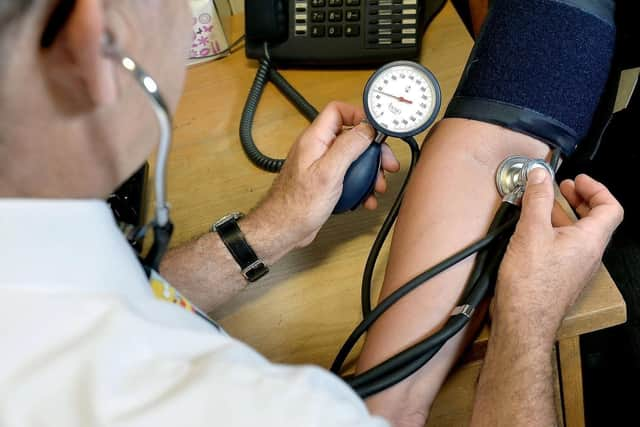GPs dished out more than 30,000 sick notes in 2022 in Portsmouth, new data reveals
and live on Freeview channel 276
For the last decade, GPs have been able to provide patients with electronic 'fit notes', which tell employers if a patient is too ill to work, or give other recommendations, such as reducing their working hours.
New figures from NHS England show 33,794 fit notes were provided by GPs in the former NHS Portsmouth CCG area in 2022, or an average of 2,816 a month. This means there were 22,199 fit notes given out for every 100,000 patients aged 18 to 65 in the area – a lower rate than England as a whole, which had 27,789 per 100,000 patients.
Advertisement
Hide AdAdvertisement
Hide AdThese figures are for the number of individual fit notes, rather than patients – a single patient may have been given multiple notes over the course of the year. Across England 10.7m fit notes were issued last year – up from 10.5m the year before, and 10.2m in 2019, the year before the onset of the coronavirus pandemic.


The NHS figures do not cover all fit notes, as some patients may opt out from sharing data.
The Daily Telegraph newspaper reported earlier this year that the Government is looking into ways of reforming the fit note system to limit the impact of long-term sickness on the economy.
John Appleby, director of research at the Nuffield Trust – a health charity – said: ‘Aside from the impact on the labour market, tackling recent rises in long-term sickness will represent a challenge to health services as they grapple with the demands of post-pandemic recovery.’
Advertisement
Hide AdAdvertisement
Hide AdWomen were disproportionately likely to be the recipients of fit notes – receiving 57.9 per cent of all fit notes last year.
Mr Appleby continued: ‘There were some notable differences between men and women in the reasons they gave for not being in work between late 2020 and late 2022, with long-term sickness rising more for women than for men. While reductions in labour market participation are almost certainly in part associated with the impact and aftermath of the pandemic, for women the rise in long-term sickness as a reason for inactivity pre-dated Covid, starting at the beginning of 2019.’